Italy seeks new gas supplies as Europe races to end reliance on Russian fuels
The European Commission has set a target of phasing out imports of Russian oil, gas and coal by 2027
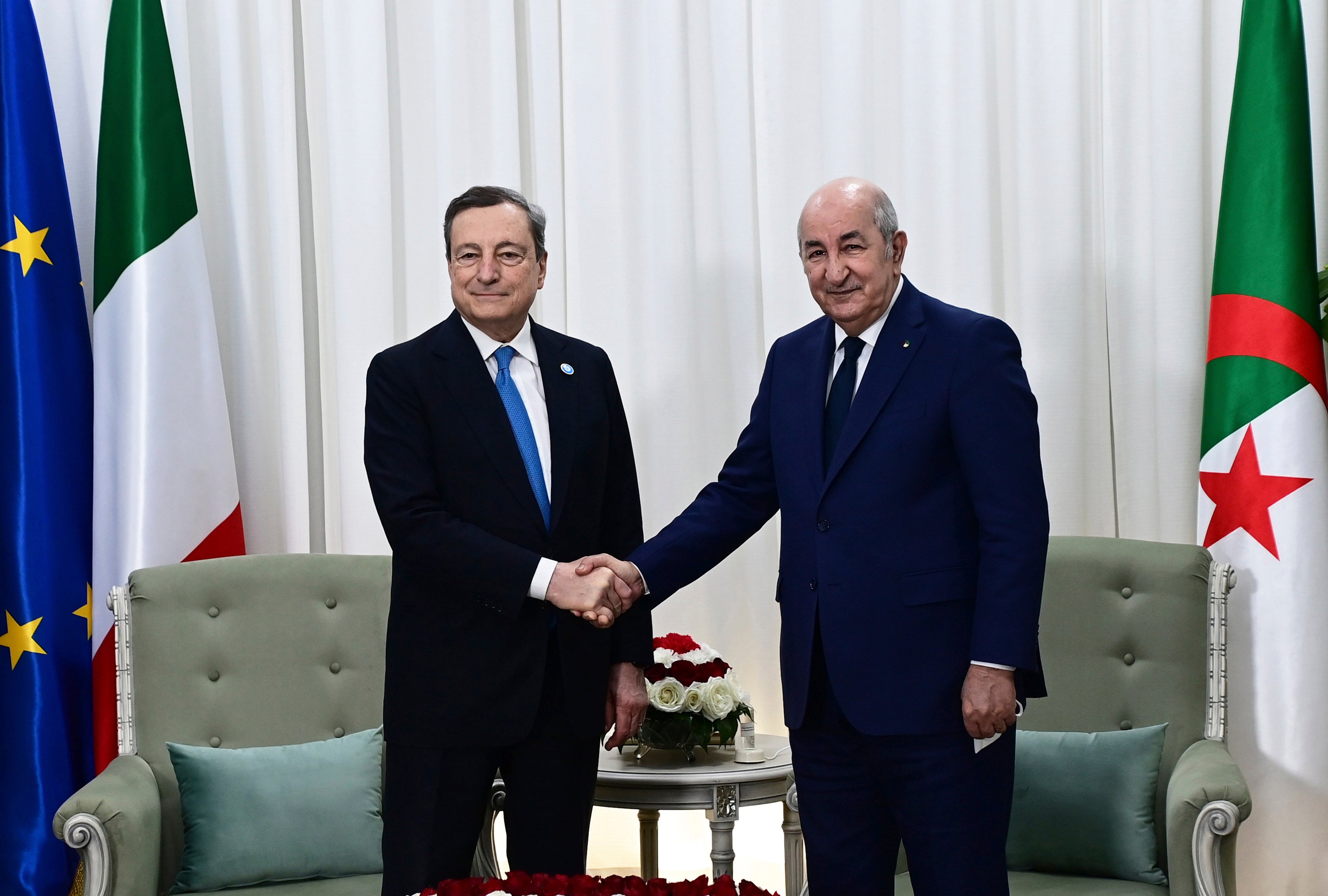
Rome is on a charm offensive to secure the best deals for Italy’s gas supplies as part of Europe’s collective quest to ease its dependence on Russia, which supplies almost three-quarters of the EU’s imports of natural gas.
Italian prime minister Mario Draghi and foreign minister Luigi di Maio travelled to Algiers on Monday to sign a deal to ramp up Algerian gas imports to Italy – the first step in the country’s uphill battle to diversify supplies in the wake of Russia’s war in Ukraine.
Just weeks after Vladimir Putin ordered his invasion on 24 February, the European Commission said in early March that it was planning to make Europe independent from Russian fossil fuels before 2030, starting with gas. The commission’s president, Ursula von der Leyen, later said it would aim to do so by 2027.
In response, Russian foreign ministry spokeswoman Maria Zakharova accused the EU of blackmailing the country “with sanctions and threats of new restrictions, increasing the armed forces of its countries along the perimeter of the Russian borders”.
Speaking at a press conference in Algiers on Monday, Italy’s PM Draghi said the agreements “were a meaningful response as we pursue this strategic objective”.
“There will be more,” he said. “Others will follow”.
The country’s minister of ecological transition, Roberto Cingolani, estimates it will take Italy between 24 and 30 months to entirely cut out Russian gas, which accounts for 40 per cent of its imports.
But as Russia’s war shows no sign of abating and as allegations of gruesome war crimes emerge, some European countries have made a point of detangling themselves from Moscow faster than others.
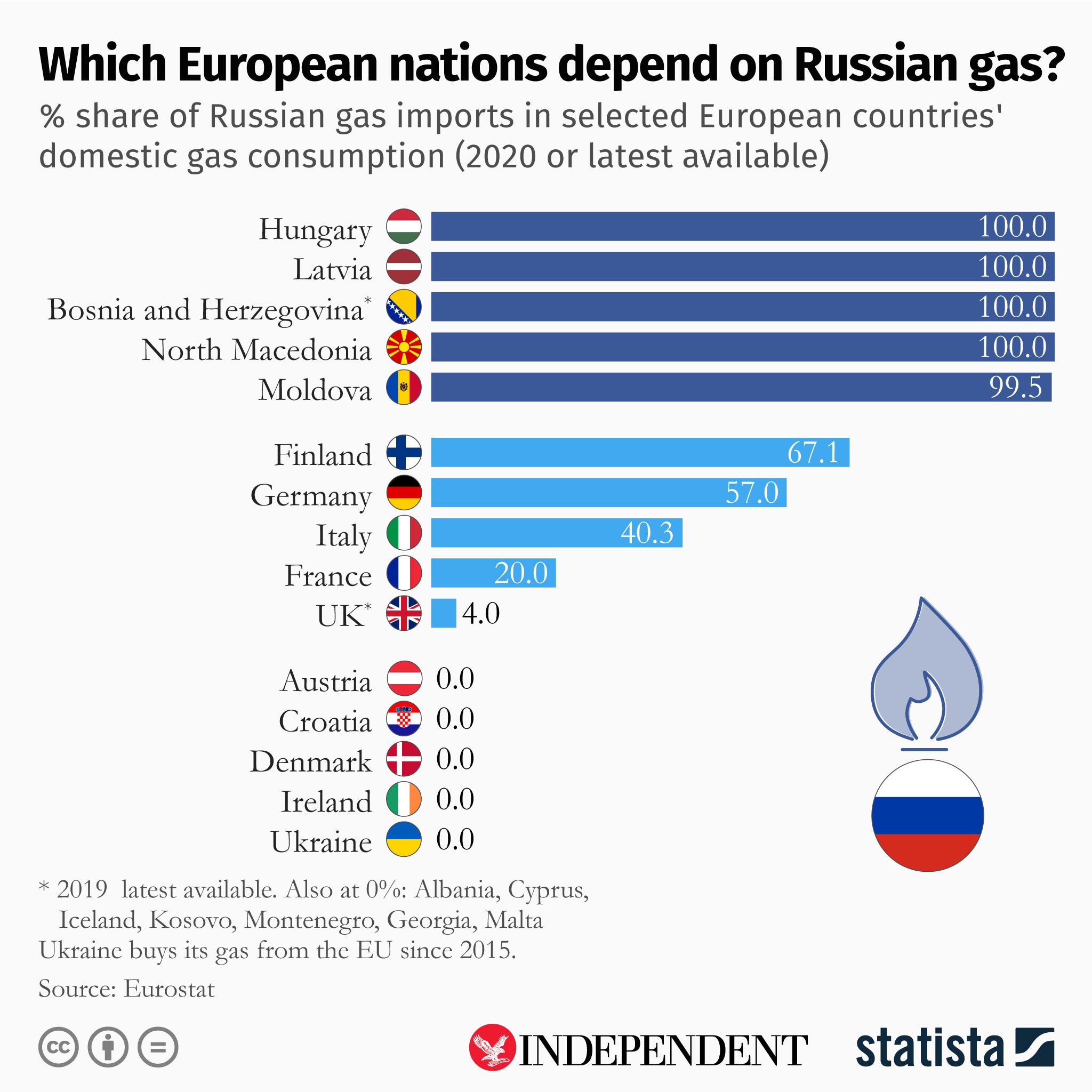
When it comes to Russian gas imports “Europe is fragmented”, explained Alessandro Lanza, a professor of energy policy at Luiss University in Rome.
Earlier this month, Lithuanian president Gitanas Nauseda announced that his country would be halting all gas imports from Russia, becoming the first European country to do so.
“Years ago, my country made decisions that today allow us with no pain to break energy ties with the aggressor,” Mr Nauseda wrote on Twitter. “If we can do it, the rest of Europe can do it too!”
But unlike Italy or Germany, Lithuania has been working on distancing itself from Russia since 2014, when Mr Putin’s annexation of Crimea sent shockwaves through the Baltic states.
With a much smaller population than Germany, Lithuania in 2014 was importing just 2.86 billion cubic metres of gas (bcm) for its 2.7 million people – considerably less than Germany, which in 2021 imported 142 bcm for its population of more than 80 million.
The German government says it hopes to cut Russian gas by 24 per cent by this summer and almost entirely by 2024 – a hugely ambitious plan for a country that relies almost entirely on Russia for its imports.
“We are actively working to get independent from the import of [Russian] oil and we think that we will be able to make it during this year,” German chancellor Olaf Scholz said last Friday.
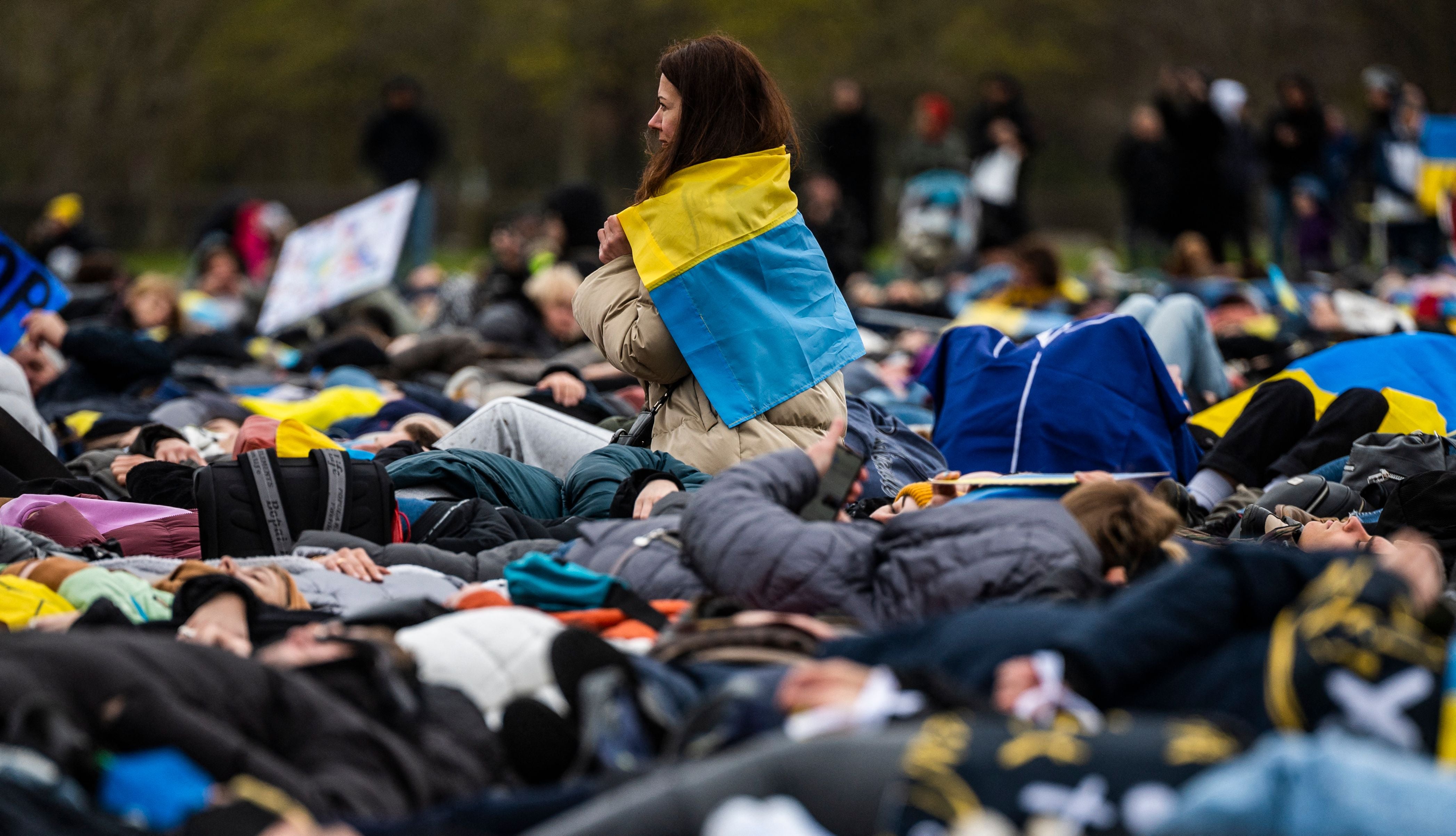
A study by Berlin-based consulting company DIW Econ found that Germany could secure gas supplies for next winter without Russian imports by combining alternative suppliers and drastic energy-saving measures.
“This is, as you may imagine, not that easy because it needs infrastructure that has to be built first,” Mr Scholz said during a news conference with British prime minister Boris Johnson in London. “So pipelines to the northern shore of Germany, regasification ports that make it possible for example that LNG ships could give their supply to the gas grid in Germany."
Other European countries are better placed to quit Russia because they have simply never fully depended on it.
French government spokesperson Gabriel Attal said in March that France was in a better position to wean itself off Russian gas because it accounted for less than 20 per cent of imports.
Cutting off Russian gas “scares [some] European countries” because they get more of their gas from them, Mr Attal said at the time.
One such nation is Austria, which imports 80 percent of its gas from Russia.
“We are very much dependent on the Russian gas, and I think all sanctions that hit us more than the Russians wouldn’t be good for us,” Austrian finance minister Magnus Brunner told reporters last week, in reference to the idea of EU sanctions on Russian oil.
“If the sanctions hit yourself more than the other one, I don’t think that’s the right way to go.”
This is also the case for European countries such as Bosnia and Herzegovina and Serbia, which each import roughly 99 per cent of their natural gas from Russia.
In Italy, where some 40 per cent of imported gas is Russian, energy experts have long called for diversification.
Regardless of whether there’s a war or not, Italy should move to decrease its dependence on Russian gas, said Mr Lanza from Luiss University.
“It’s wrong to have all our eggs in one basket,” he told The Independent.
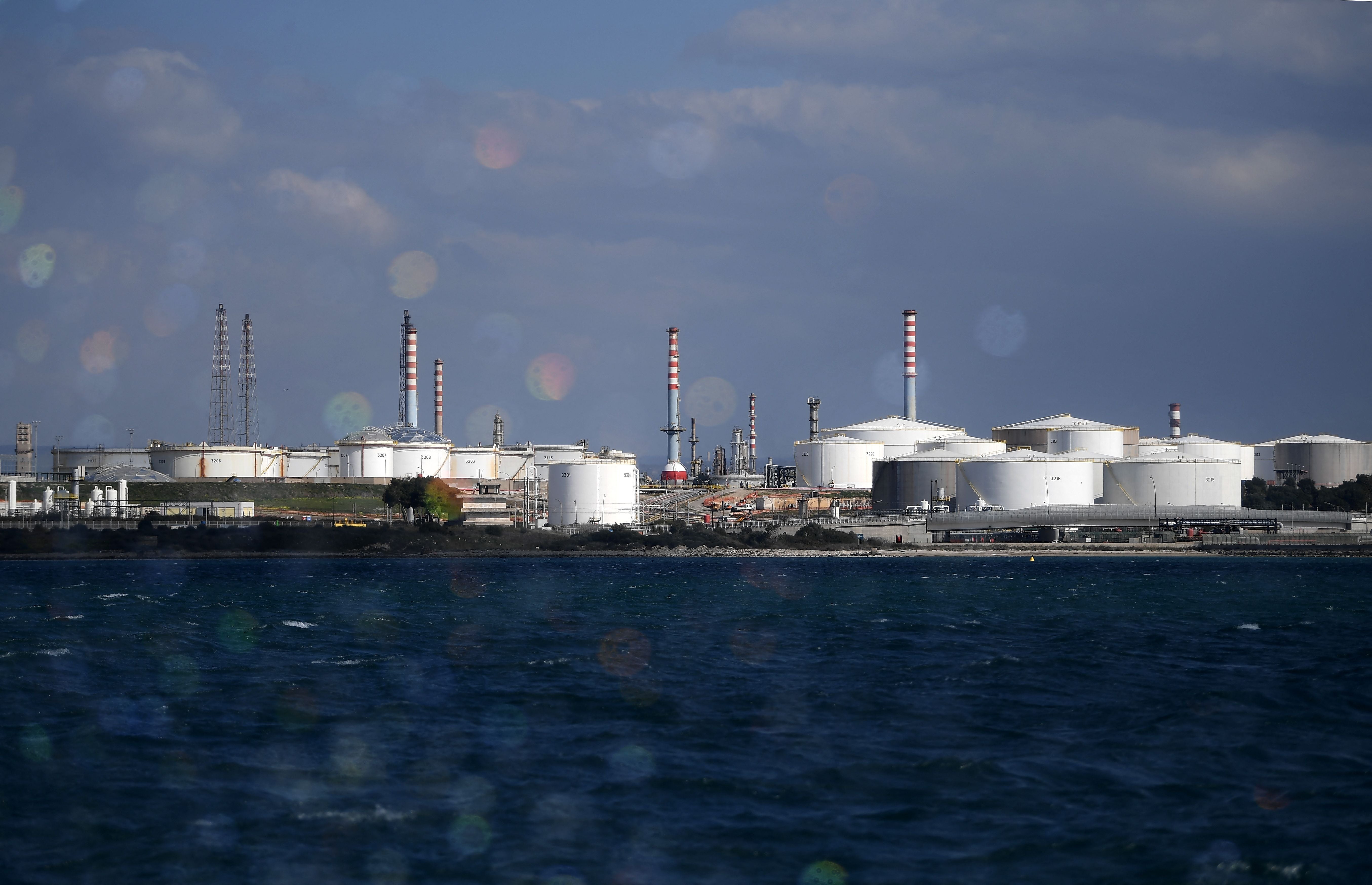
Ahead of the visit to Algiers, Italy’s foreign minister Mr Di Maio said that in addition to Algeria, Qatar, Congo and Angola had also expressed their ability to increase gas exports.
“In two months we will be able to halve Italy’s dependence on Russian gas and in winter we will be able to do even better. We will no longer be dependent on Russia,” said Mr Di Maio.
But after a winter of increasing electricity and gas bills, the thought of weaning the country off a major provider has caused Italian households to worry.
Mr Di Maio’s attempts to find alternative sources to Russia is commendable, said Mr Lanza, cautioning: “But if the war continues and Russian gas were truly to be cut off, next winter is set to be uphill – it’ll be a winter we won’t forget.”
Join our commenting forum
Join thought-provoking conversations, follow other Independent readers and see their replies
Comments

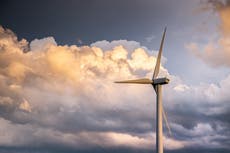
Bookmark popover
Removed from bookmarks